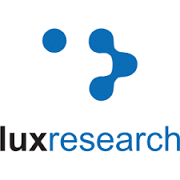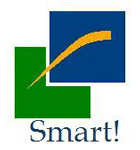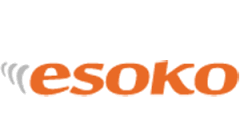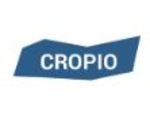Description

Lux Research

Smart! Fertilizer Management
Comprehensive Overview: Lux Research vs Smart! Fertilizer Management
Lux Research and Smart! Fertilizer Management are two entities that focus on agricultural innovation, but they operate in slightly different areas, which makes a direct comparison somewhat challenging. Here's an overview of each based on your requests:
Lux Research
a) Primary Functions and Target Markets:
- Primary Functions: Lux Research is a research and advisory firm that provides strategic advice and market intelligence on emerging technologies and innovations. Their services focus on industries such as energy, materials, infrastructure, health, and digital transformation. They offer in-depth research reports, consulting services, and market forecasts.
- Target Markets: Lux Research primarily targets corporations, investors, and policy makers looking for insights into technological innovation and market landscapes. Their target markets span a variety of sectors, including agriculture technology, where they provide insights into advancements like precision farming, biotechnology, and sustainable practices.
b) Market Share and User Base:
- Market Share: As a consultancy and research service, Lux Research's "market share" isn't measured in the traditional sense like a product-based company. They are noted for their influence and thought leadership in several high-tech and emerging fields.
- User Base: They have a wide range of clients, including Fortune 500 companies, startups, government agencies, and academic institutions. Their user base is typically comprised of decision-makers in strategic roles.
c) Key Differentiating Factors:
- Comprehensive Insights: Lux Research's primary differentiator is the depth and breadth of its technology insights across multiple industries.
- Innovation-Focused: Their strong emphasis on innovation and future trends allows them to provide valuable foresight into market shifts.
Smart! Fertilizer Management
a) Primary Functions and Target Markets:
- Primary Functions: Smart! Fertilizer Management offers a software platform designed to optimize fertilizer usage in agriculture. The platform uses algorithms and data analytics to create precise fertilization plans, aiming to increase crop yields while reducing environmental impact.
- Target Markets: Their main customers are farmers, agricultural consultants, and agronomists looking for tools to improve crop productivity and resource management. They also serve agricultural companies and cooperatives aiming for sustainable practices.
b) Market Share and User Base:
- Market Share: As a niche software service, Smart! Fertilizer Management competes with other precision agriculture tools. The specifics of market share would depend on the adoption rate in various regions and competition from integrated farming platforms.
- User Base: The user base comprises individual farmers, large farm operations, and agricultural advisors. They cater to both small-scale operations and large agricultural enterprises.
c) Key Differentiating Factors:
- Focus on Fertilization: Specializing in fertilizer management distinguishes them from broader farm management platforms. This allows them to provide highly detailed and specific insights into nutrient management.
- Data-Driven Solutions: Their use of algorithms and data analytics to drive sustainability and efficiency in farming practices provides a practical technology edge.
- Environmental Impact: Emphasis on reducing environmental impact through efficient resource use is a selling point for markets focused on sustainability.
Comparison Summary:
In terms of direct comparison:
- Focus: Lux Research offers broad market intelligence across various industries, including agriculture tech, while Smart! Fertilizer Management provides a specialized tool for fertilizer optimization.
- Markets: Lux targets large corporations and policy makers while Smart! caters directly to the agricultural sector.
- Impact: Lux is influential in strategic decision-making and trend forecasting, whereas Smart! is actionable at the field level, impacting crop yields and sustainability practices directly.
Both Lux Research and Smart! Fertilizer Management play critical roles within their respective niches by advancing agricultural technology and sustainability practices.
Contact Info

Year founded :
2004
+1 617-502-5300
Not Available
United States
http://www.linkedin.com/company/lux-research

Year founded :
Not Available
Not Available
Not Available
Not Available
Not Available
Feature Similarity Breakdown: Lux Research, Smart! Fertilizer Management
When comparing Lux Research and Smart! Fertilizer Management, it's important to highlight their offerings in the field of agricultural technology and data-driven solutions. Here’s a breakdown of their features, user interfaces, and unique aspects:
a) Core Features in Common
-
Data-Driven Insights: Both platforms provide research and insights grounded in robust data analytics to help farmers and agricultural professionals make informed decisions.
-
Optimization Recommendations: They offer recommendations to optimize fertilizer use, water management, and crop yields, emphasizing efficiency and sustainability.
-
Resource Management: Each platform emphasizes effective resource management to improve agricultural productivity and sustainability practices.
-
Market Trends and Analysis: Both companies deliver insights or updates on agricultural trends and market dynamics to inform strategy and operations.
b) User Interface Comparison
-
Lux Research: Typically, Lux Research delivers its information in the form of detailed reports, dashboards, and analytical tools designed for a professional audience, including industry analysts and executives. The focus is likely on providing high-level insights with comprehensive data visualization options.
-
Smart! Fertilizer Management: Usually offers a user-friendly interface tailored for farmers and agronomists. The focus is on simplicity and ease of use, often featuring interactive tools and straightforward visualizations to facilitate daily operations and tactical decisions at the field level.
c) Unique Features
-
Lux Research:
- Strategic Insights for Industries: Lux Research often provides broader strategic insights, including technology scouting and trend reports, that can serve various sectors beyond agriculture.
- Advanced Technological and Sustainability Analysis: Their research might include in-depth evaluations of emerging technologies and sustainability trends tailored to a corporate audience.
-
Smart! Fertilizer Management:
- Fertilizer Optimization and Planning Tools: It may offer specialized tools that allow users to input specific crop and soil data to receive customized fertilizer plans, enhancing precision agriculture initiatives.
- Real-Time Data Integration: The product might emphasize real-time data and updates, integrating with on-field sensors or IoT devices to provide immediate feedback and adjustments.
In summary, while both Lux Research and Smart! Fertilizer Management offer valuable insights for optimizing agricultural productivity, Lux Research leans towards strategic industry-wide insights, whereas Smart! Fertilizer Management is more focused on providing practical, actionable tools for day-to-day agricultural operations.
Features

Market Insights
Data Tools
Client Solutions
Innovation Tracking

Data-Driven Decisions
Resource Management
Climate Adaptation
Optimized Fertilizer Planning
User-Friendly Interface
Best Fit Use Cases: Lux Research, Smart! Fertilizer Management
Lux Research and Smart! Fertilizer Management cater to different needs within the agricultural and agribusiness sectors, each with distinct strengths and suitable use cases. Here's how they each align with specific business types, projects, and industry needs:
Lux Research
a) Best Fit Use Cases
- Types of Businesses or Projects:
- Agricultural Technology Developers: Companies focused on developing innovative agricultural technologies can leverage Lux Research's insights to understand the latest trends and emerging technologies in the sector.
- Investment Firms: Firms investing in the agricultural sector or looking to make informed decisions on funding agritech startups would benefit from Lux's deep research and market analysis.
- Corporate Strategy Teams in Agribusiness: Companies looking to expand or pivot to new areas within agriculture can use Lux's strategic insights to inform their business decisions.
d) Catering to Different Industry Verticals or Company Sizes
- Enterprise-Level Companies: Large agribusinesses and multinational corporations that require comprehensive market analysis and trend forecasts for long-term strategic planning.
- Industry Verticals: Lux Research serves a wide range of industries, from precision farming and biotechnology to agricultural machinery, by providing insights that cater to each vertical's specific innovation needs.
Smart! Fertilizer Management
b) Preferred Use Cases
- Types of Businesses or Projects:
- Farmers and Growers: Individual farmers and cooperative farming groups seeking to enhance crop yield efficiently with the precise application of fertilizers.
- Agricultural Consultants: Professionals offering consulting services to farmers on optimizing fertilizer use and improving agronomic practices.
- Sustainable Agriculture Projects: Projects that prioritize eco-friendly farming practices and the reduction of chemical inputs can leverage Smart! Fertilizer Management for more sustainable nutrient management.
d) Catering to Different Industry Verticals or Company Sizes
- Small to Medium-Sized Farms: The tool is particularly advantageous for smaller farms that need cost-effective solutions to manage input costs efficiently.
- Precision Agriculture Companies: Businesses that provide precision agriculture solutions can integrate Smart! Fertilizer Management into their product offerings to enhance overall farm management solutions.
- Vertical Farming and Urban Agriculture: These sectors can rely on precise nutrient management to maximize productivity in limited spaces.
Summary
While Lux Research provides macro trends, strategic insights, and deep dives into technological advancements suitable for larger enterprises and investment-focused entities, Smart! Fertilizer Management offers a practical, operational solution for optimizing fertilizer use on the ground. It is better aligned with the needs of growers, consultants, and smaller farming operations looking to maximize crop yield and sustainability. Together, these products cater to a broad spectrum of needs across the agriculture sector, from strategic innovation to hands-on nutrient management.
Pricing

Pricing Not Available

Pricing Not Available
Metrics History
Metrics History
Comparing teamSize across companies
Conclusion & Final Verdict: Lux Research vs Smart! Fertilizer Management
Conclusion and Final Verdict for Lux Research vs. Smart! Fertilizer Management
Based on an analysis of the products offered by Lux Research and Smart! Fertilizer Management, it is crucial to weigh the pros and cons of each product to arrive at the best overall value for users.
a) Best Overall Value
Considering various factors including cost, features, user-friendliness, customer support, and the adaptability of each product to different agricultural scenarios, Smart! Fertilizer Management appears to offer the best overall value. This conclusion stems from its comprehensive offering of features, strong focus on precision agriculture, and excellent user feedback regarding improvements in yield outcomes and resource optimization.
b) Pros and Cons of Each Product
Lux Research:
-
Pros:
- Strong emphasis on cutting-edge research and development, which can provide users with forward-thinking insights and methodologies.
- Access to a wide range of analytical tools and reports that can help in decision-making processes.
-
Cons:
- Potentially higher costs due to premium research services, which may not be economically feasible for smaller farming operations.
- May require more specialized knowledge to fully leverage the advanced tools and insights provided.
Smart! Fertilizer Management:
-
Pros:
- User-friendly platform with a strong focus on practical, actionable solutions for immediate implementation in farming practices.
- Excellent customer support and a community-driven approach that allows for continuous improvements and real-time feedback.
- Affordably priced, offering good value for both small-scale and large-scale farmers.
-
Cons:
- While highly practical, it may sometimes lack the visionary, long-term strategic insights that industry-leading research can provide.
c) Recommendations for Users
-
For users focused on immediate and practical improvements: Smart! Fertilizer Management is recommended for its user-friendly approach and effectiveness in optimizing fertilizer use to increase yield and reduce costs effectively.
-
For users interested in cutting-edge research and strategic insights: Lux Research can be a better fit for those who want to integrate the latest innovations into their agricultural practices, provided the budget allows for it.
In summary, for most users, Smart! Fertilizer Management will be the more pragmatic choice, particularly for those needing to make immediate improvements without extensive research investment. However, for those who value detailed research insights and have the resources to support advanced strategic implementation, Lux Research could offer compelling advantages. Ultimately, the decision should align with the user’s specific needs, resources, and long-term objectives in agricultural management.
Add to compare
Add similar companies



